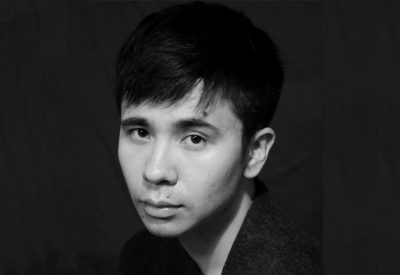
Ocean Vuong
Giovani abbastanza da credere che niente
li cambierà, scendono, mano nella mano,
nel cratere della bomba. La notte piena
di denti neri. Il Rolex falso di lui, settimane
dopo essere andato in frantumi sulla guancia di lei, adesso
s’affievolisce come una luna in miniatura dietro la sua chioma.
In questa versione il serpente è senza testa – reso immobile
come una corda sciolta dalle caviglie degli amanti.
Le solleva la gonna di cotone bianco, rivelando
un’altra ora. La mano di lui. Le mani. Le sillabe
dentro di loro. O padre, O premonizione, stringiti
a lei – mentre il prato viene lacerato
dagli stridi dei grilli. Mostrami come la rovina costruisce una casa
fatta di femori e anche. O madre,
O mano minuta, insegnami
ad abbracciare un uomo come la sete
abbraccia l’acqua. Fa’ che ogni fiume invidi
le nostre bocche. Fa’ che ogni bacio percuota il corpo
come una stagione. Dove le mele tuonano
sulla terra con zoccoli rossi & io sono tuo figlio.
Ocean Vuong
(Traduzione di Damiano Abeni e Moira Egan)
da “Cielo notturno con fori d’uscita”, La nave di Teseo, 2017
∗∗∗
A Little Closer to the Edge
Young enough to believe nothing
will change them, they step, hand in hand,
into the bomb crater. The night full
of black teeth. His faux Rolex, weeks
from shattering against her cheek, now dims
like a miniature moon behind her hair.
In this version, the snake is headless—stilled
like a cord unraveled from the lovers’ ankles.
He lifts her white cotton skirt, revealing
another hour. His hand. His hands. The syllables
inside them. O father, O foreshadow, press
into her—as the field shreds itself
with cricket cries. Show me how ruin makes a home
out of hip bones. O mother,
O minute hand, teach me
how to hold a man the way thirst
holds water. Let every river envy
our mouths. Let every kiss hit the body
like a season. Where apples thunder
the earth with red hooves. & I am your son.
Ocean Vuong
da “Night Sky with Exit Wounds”, Random House, 2017


